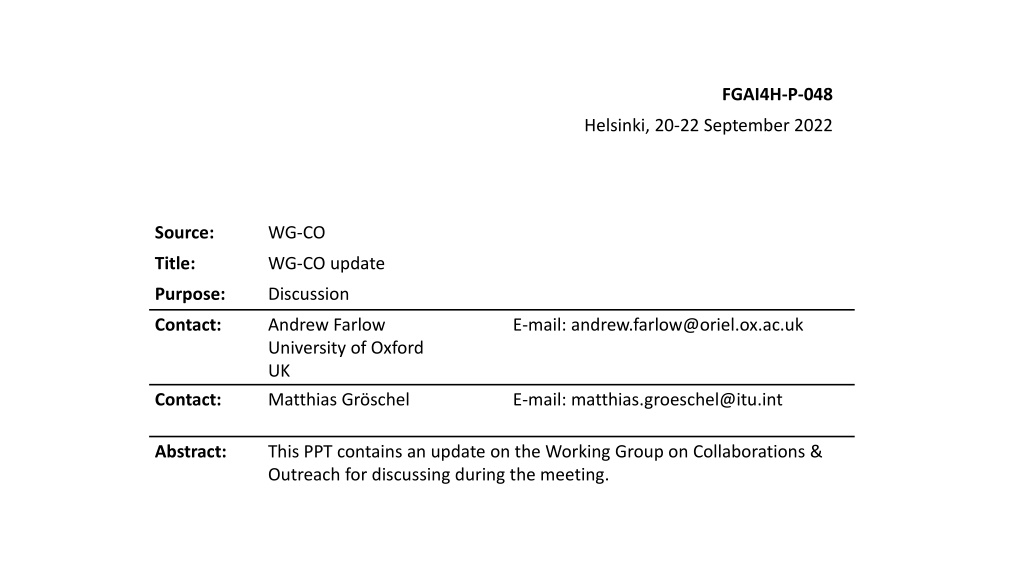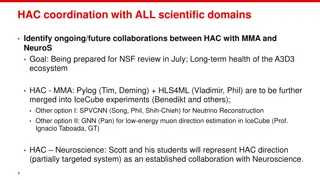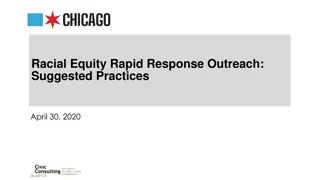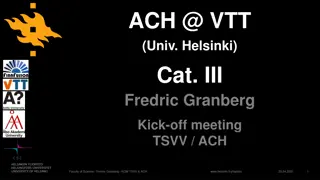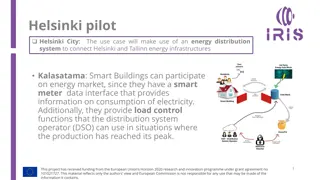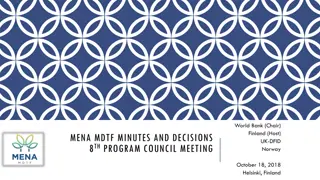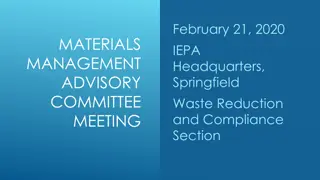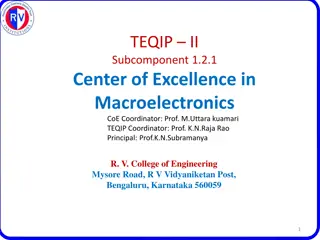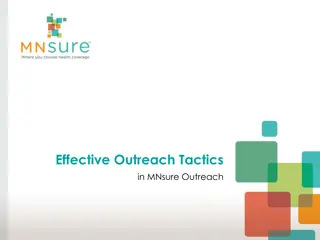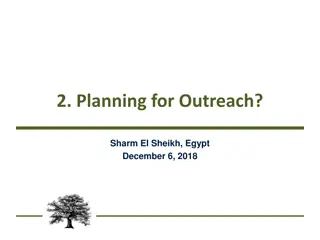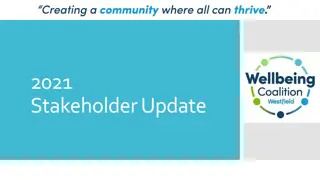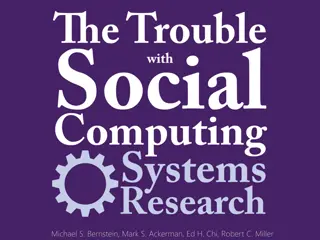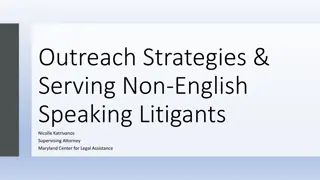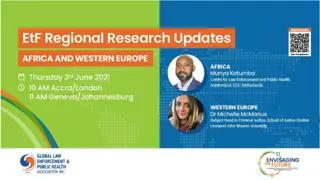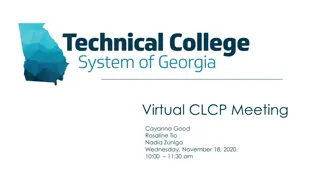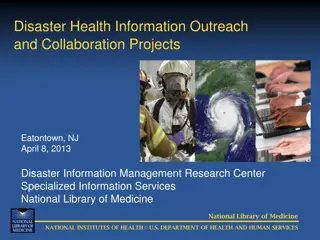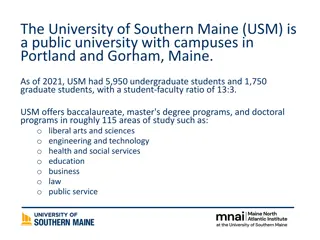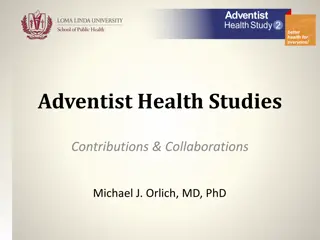Insights from WG-CO Meeting on Collaborations and Outreach in Helsinki
This presentation summarizes the recent Working Group on Collaborations and Outreach meeting held in Helsinki, focusing on strategies to facilitate AI implementation worldwide, promote knowledge sharing, and develop sustainable business models. Key areas of discussion include equitable data infrastructure, lessons from COVID-19, and the role of various organizations in supporting digital health initiatives.
Download Presentation

Please find below an Image/Link to download the presentation.
The content on the website is provided AS IS for your information and personal use only. It may not be sold, licensed, or shared on other websites without obtaining consent from the author. Download presentation by click this link. If you encounter any issues during the download, it is possible that the publisher has removed the file from their server.
E N D
Presentation Transcript
FGAI4H-P-048 Helsinki, 20-22 September 2022 Source: WG-CO Title: WG-CO update Purpose: Discussion Contact: Andrew Farlow University of Oxford UK E-mail: andrew.farlow@oriel.ox.ac.uk Contact: Matthias Gr schel E-mail: matthias.groeschel@itu.int Abstract: This PPT contains an update on the Working Group on Collaborations & Outreach for discussing during the meeting.
Working Group Collaborations & Outreach Helsinki meeting 19-22 September 2022 Andrew Farlow & Matthias Gr schel
Insights from this meeting (yesterday) at heart of our activity Making AI happen on the ground The intent of the Global initiative would be to facilitate that primarily by reducing vertical investments and creating knowledge and resource sharing pool of expertise, the discussion of governance is precisely to deliver this engagements and sustainable business model creation at country level. Sameer Pujar WHO The ITU-WHO Focus Group contributes benchmarking and open-source tools Working Group for Collaborations and Outreach contributes by building networks of collaborations, supports implementors, supports innovation on the ground , acts as a voice/conscience
Components for catalysing digital health Components for catalysing digital health and AI for health innovation and AI for health innovation
Main areas: Equitable data infrastructure to support equitable and effective epidemic and pandemic intelligence Lessons of COVID-19 for equitable data infrastructures FAIR+E, Findability, Accessibility, Interoperability, and Reuse + Equity Knowledge chains Managed data access Hubs versus nodes, centralisation versus decentralisation Costs of data sharing (in general burden issues) Also scoping study of state of digital tools Africa (not just health)
Bringing ML to the bedside The gift from yesterday Medical data as public good Beyond bias Algorithmic unfairness, infrastructure, genealogies of data Refusing AI contact: Autism, Algorithms and the Dangers of Technopsyence Webinars AI-enabled public health from a marginalized perspective Ethics in AI for Health: The quest for global governance Making Neural Nets uncool again
25000 25000 approx. reached reached approx.people people 103 103countries countries 36 minutes 36 minutes on average on average
Africa (5%) Arab Region (4%) North America (24%) Asia & Pacific (12%) ~75% US or Europe ~75% US or Europe Latin America & Carribean (5%) Europe (50%)
Challenges Challenges to tackle globally relevant health problems health problems with FG-AI4H standards and software standards and software But only 5% of solutions continue to be developed after such events. Why? Nolte et al., 2020 and McIntosh et al., 2021
A venture building structure that can run sustainable Challenges Reframing how we should approach tackling health innovation. Benefits of a challenge format.
Next steps of Challenge concept Carefully designing the challenges absolutely critical Disability Adjusted Life Years (DALYs), Universal Health Coverage (UHC), Accounting for environmental and social determinants of health Financing is a big issue Lack of data (i.e. data inequality) is more pressing at the moment Solving the latter would incentivize effective private and local innovation because without data for AI models to learn from, there is no AI. Not big prize money, the reward has to be something else, AI for good, opportunity to have impact with skills, etc. Need unique and interesting data sets and perceived important problem statements Availability of such data could catalyze the bottom-up innovations whenever the access (for commercialization) gets limited to local on-ground players who live and understand the overall context. We working working towards evidence-based guideline for designing challenges
Some next overall steps Botnar resources from October to enable us to support some next activities through staff and internships Would like to link with capacity strengthening, courses, education Application for funds to run a convening meeting to establish an approach to put local innovation and local implementation at heart of the approach Villgro Africa, IBM Africa, Wadhwami AI (India). Africa-Oxford (AfOx) Health Innovation Platform, Creative Destruction Lab, FruitPunch AI Public good core functions (regulation, ethics, health technology assessment approach) balanced with networks of innovators and implementers Numerous supportive partners, public and private Cameroon ITU-WHO meeting, access and stewardship of antibiotics and associated diagnostics in hospitals in LMICs, GARDP/WHO/UNICEF/CHAI Rwanda CDC Africa meeting Spring/early summer intense 4-5 day convening group (subject to funding)
THANK YOU THANK YOU 18
